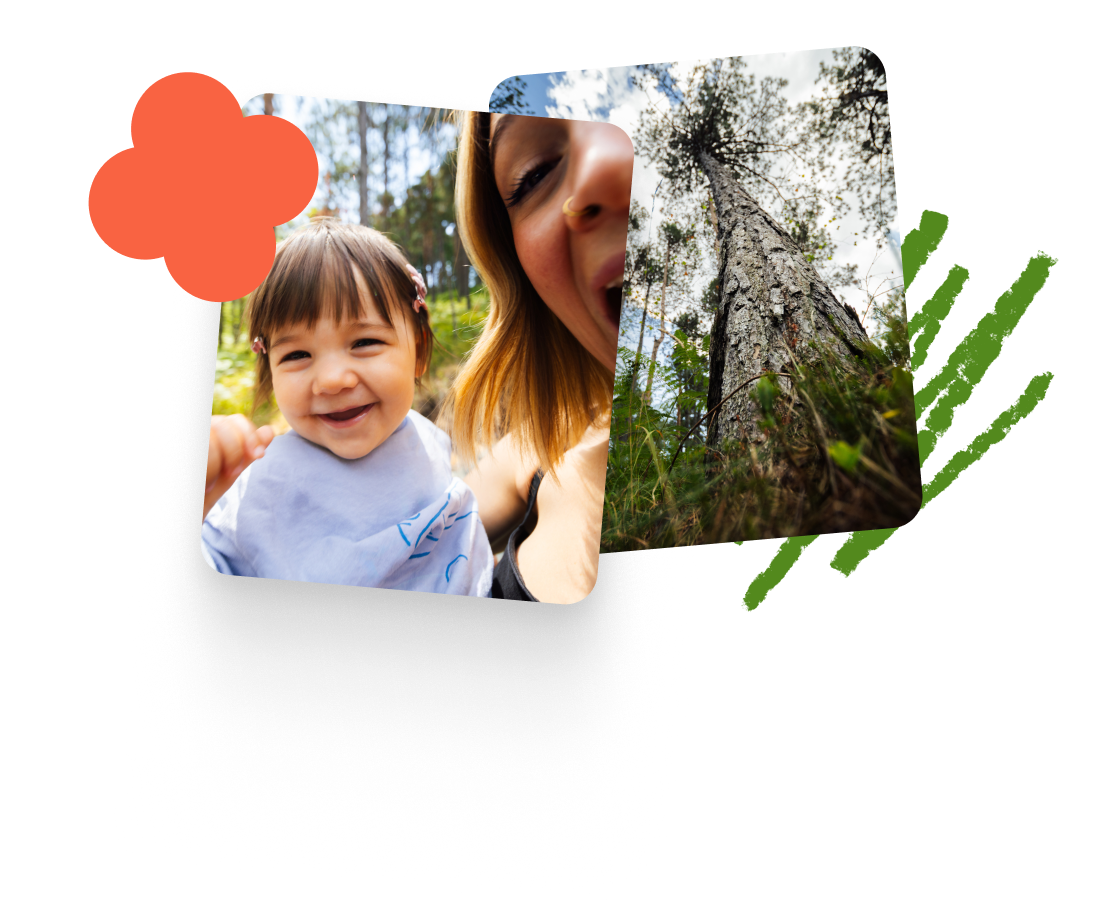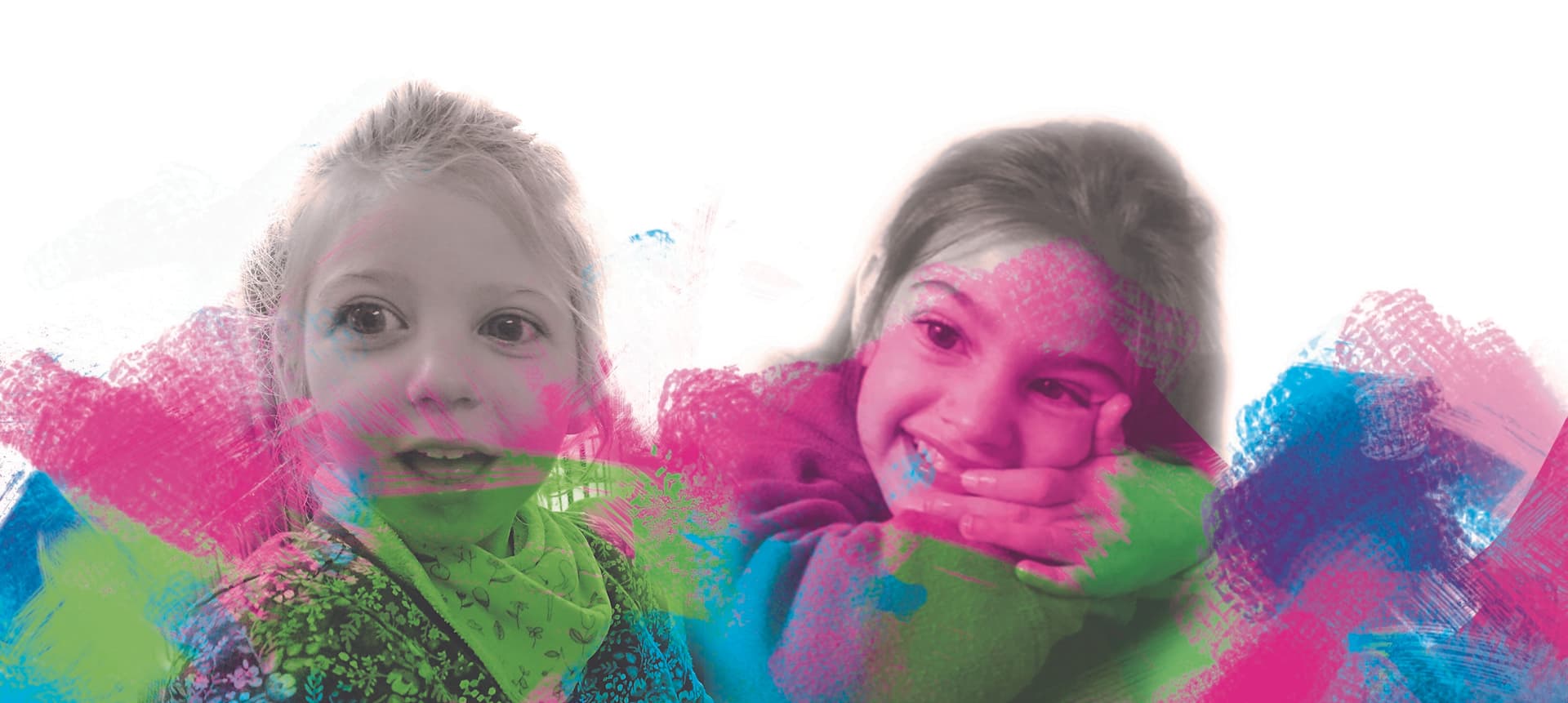
is now part of
Joy Parenting Club!
Families and care organisations using Heba will now have the option to also join Joy. For any questions, reach out to us at hello@heba.care

Families and care organisations using Heba will now have the option to also join Joy. For any questions, reach out to us at hello@heba.care

February 10, 2025
Heba are proud to welcome Laura Hattersley, Director and Chair of CASK Research UK, as a guest author to our blog.
My name is Laura and I’m mum to a beautiful seven year old girl called Sarah. Sarah was born with a thick head of hair and big wide eyes. She was our first child and she was absolutely perfect. After an extremely tough year of watching my father slowly lose his life to pancreatic cancer I felt that this was the bright light we needed. Little did I know that six weeks later I would be told that Sarah needed to be seen by a paediatrician at our local hospital.
Still appearing absolutely healthy, Sarah had not ‘passed’ her six week GP check. The GP was unable to find the soft spots (fontanelle) on her head and so I was told that we’d have to have her looked at by a paediatrician. I saw this more as a formality and an annoyance and tried my best to ignore the niggling voice that kept telling me that maybe the doctors were right. My husband and I both took Sarah to the hospital, where the paediatrician agreed with the GP and immediately sent Sarah for a CT scan. The CT scan appeared to indicate that Sarah had a rare condition called craniosynostosis. This condition causes the plates of the skull to fuse together too soon and is fatal if not operated on. We were told that we’d be referred to Great Ormond Street and would hear from them the next day. This is when reality set in. It was clear to me and my husband that being sent to the famous Children’s hospital in London when we lived in Surrey meant that Sarah’s condition was serious. We were sent home with a leaflet on the condition and told not to worry too much. Easier said than done!
That evening we received a call from the young junior doctor whom we had met at the hospital. It’s obviously quite unusual for a doctor to call your house, especially on an evening, and he sounded nervous. He told us that, upon reflection, they had misdiagnosed Sarah and that she didn’t have craniosynostosis after all. Instead, her brain was not growing as it should and that was why the doctors could not easily find her soft spots. He apologised, told us we’d be seen by a neurologist at some point, and hung up. This was the first of a number of misdiagnoses that would blight the first years of our lives as new parents.
After that the bottom dropped out of my world. Although we didn’t have any diagnosis it was pretty evident that a brain that wasn’t growing properly was going to lead to significant disabilities. This was something no new parents are prepared to consider or deal with. I became obsessed with measuring her head, in the hope that it would start growing and prove everyone wrong. I hated the tape measure but also couldn’t stop myself from using it. We waited for the MRI, which ended up being a disaster since a baby won’t stay still in a noisy machine. Finally, after what seemed like a lifetime of waiting we had our appointment with the neurologist. We were anxious for answers after an autumn of uncertainty and fear. Sadly, this was not to be. The neurologist brought up an MRI on his computer and confidently assured us that the brain was perfectly normal and there was nothing wrong with our daughter. It was the shortest appointment ever. We left, perplexed, bewildered and upset. We were upset because we knew this was not correct. Her brain was small, that was a fact, and by then there were indications that her development was delayed as a consequence.
The next day, the phone rang and it was the neurologist on the telephone. He told us he had been looking at another patient’s MRI and that yes, Sarah’s was abnormal, although the pictures were very fuzzy due to her moving during the imaging. He was confident, however, that her cerebellum was small, and quite probably her brain stem was also small. This indicated a condition called pontocerebellar hypoplasia, but she needed another MRI to confirm it. My husband told the neurologist that he was not, under any circumstances, to phone me with the results, because he didn’t want me to be alone receiving potentially devastating news. We wanted to be called in for an appointment to discuss the results together, as a family.
Sarah finally had her second MRI about five months after the first, and some time later I received a phone call from the neurologist. As we’d expected, I was at home alone with Sarah whilst my husband was at work. The neurologist triumphantly told me that he had been right. Sarah’s brainstem was indeed small and she did indeed have pontocerebellar hypoplasia (PCH was short). By then I’d looked up this condition and also had a friend with a son who had PCH type 2, the most well known form. My readings had informed me that average life expectancy was around seven years of age, and I had obviously observed my friend’s son and had compared him to Sarah. They seemed to have very little in common. My friend’s son was very stiff (hypertonic) whilst Sarah was very floppy. Neither had much control of their bodies and Sarah moved a lot less but when she did her movements were more deliberate and smoother. I questioned the doctor about the type of PCH. I remember saying, “well it’s not PCH type 2 right?”, hoping for some kind of agreement. I got none. Instead I was told that genetic testing would give more answers, but this would take some time.
Just after Sarah’s 1st birthday we got confirmation of Sarah’s CASK gene mutation. By then, having studied biology my whole life, I had scoured the internet for information on PCH and was confident that she had a form called MICPCH, caused by a mutation on the CASK gene. I’d even told our geneticist this. I think she was amused to have a biologist as a patient and that I had been able to self-diagnose my daughter with one of the world’s rarest diseases without requiring genetic screening.
A month later, Sarah started with seizures and that brought another year of misdiagnoses, mistakes and heartbreak. There is a very broad spectrum within CASK disorders but it was becoming apparent that Sarah was at the most medically severe end, with severe versions of many of the possible symptoms.
I won’t lie, the first four years were hell. I was lonely, scared and wanted more than anything for my daughter to improve. I was obsessed with getting her to sit, adamant she would develop given enough physio and intensive therapies. We flew Sarah around the world to see specialists in various therapies. Occasionally we would see her start to develop a new skill only to lose it if we didn’t practice it every single day or if she became ill. Looking back I was clearly in denial and wasn’t able to accept the likely reality that Sarah would always be very disabled, no matter how much effort I made.
In 2020, feeling like I was slowly emerging from the fog, I created a website to provide information to families on CASK, the biology, symptoms and assistance with understanding the genetics. Being stuck at home and having had to give up my career as a biology teacher, it was a good outlet for my skills. In 2021, after hearing about a scientist in the US who was in urgent need of funding to complete a study on CASK, I decided it would be useful to set up a charity to raise money in the UK. The website was converted into the charity’s website, I created a constitution, formed a group of trustees and got a bank account. Little did I realise that this would become an almost full time (unpaid) job, that supporting a rare disease isn’t just about fundraising and how difficult fundraising for a super rare disease actually is!
CASK Research Foundation (also known as CASK Research UK) is now three years old. Our priority is to raise money for scientific and medical research, however the journey I have been on has definitely influenced our work. As a result of the issues we had with getting a CASK diagnosis for Sarah, and after reading several papers, I realised that, with the right information, neurologists on many occasions could be diagnosing MICPCH from an MRI. The genetic testing is of course essential to absolutely confirm a CASK mutation, but it is possible to diagnose earlier. I worked with Professor Kutsche, who discovered CASK disorders, and UK neurologist Dr Amin, to create instructions for neurologists and radiologists, enabling them to diagnose MICPCH from an MRI. This information is now on our website.
As well as funding several bits of research around the UK and getting numerous universities studying CASK when it wasn’t currently being studied anywhere in the UK, we’ve also had success with international research. I was fortunate enough to be introduced to an American epileptologist Dr Shahid by a fellow parent. I shared the story of Sarah’s epilepsy misdiagnosis (a story too long for this blog!) through to her eventual diagnosis with infantile spasms. This was a very traumatic period for us, and Dr Shahid could clearly see my passion for understanding CASK-related epilepsy better and making sure no family ever has to go through what we went through. He promised he would create a study and help our community. Following the formation of a new US CASK charity, Project CASK, I passed the study over to them since a US base and reach was essential. This is currently an ongoing study and I am excited to see how this improves epilepsy treatment in our community.
There are also two gene therapies happening for CASK, which is never something I thought I would be saying a few years ago. One, led by the University of California, Davis, was initiated and funded by our charity and our international partners in the CASK Coalition, and another was instigated independently by one of our Scientific advisors and is currently being funded by the US charity. This is all incredibly exciting and gives so much hope for the future.
My advice to new parents with a medically complex diagnosis is that things get easier to manage, even if they don’t necessarily get better or easier in themselves. We become more resilient and skilful in dealing with situations that most people will never have to deal with. My second piece of advice would be, if people want help with getting treatments for their children then you have to tell your story to anyone and everyone. Your story is what sparks passion in others and motivates them to help a disease or condition they may never previously heard of.
Want to share your parent-carer story? We’d love to hear it. Get in touch with our team at hello@heba.care